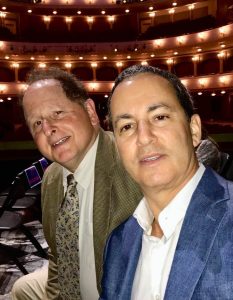Children are usually oblivious to the uniqueness of their culture. You can live in the strangest of times or places and to you it’s just plain normal. My father grew up in Volyn, a place in Eastern Europe dominated by Ukrainians, and didn’t think it at all strange that Poland controlled his province. He thought it would be part of Poland for eternity. Stalin and Ukrainians had a different opinion.
I grew up in a far more stable part of the world (at least for now): Wisconsin. There was nothing strange or unusual about it except maybe the fact that everyone seemed to prefer brandy over other hard liquor.
But when it came to art it was an unusual time. The literary novel was a dominant art form. That wasn’t always true in America, I’m told. Historically, Americans weren’t big readers except on the East Coast. Bookstores weren’t common. Macy’s was a major retailer of books. The rise of the novel in American culture was a post-WWII phenomenon. I didn’t know that. I assumed America had been reading and paying major attention to literary novels for at least one hundred years.
What was even more unusual during my youth was that many leading writers of literary fiction were Jewish. The big three – Bellow, Malamud, and Roth – wrote bestsellers that were widely admired and imitated. I didn’t know that this was unusual either. Seemed normal to me.
Their writing was unambiguously connected to nineteenth and early twentieth century Yiddish writers from the Jewish Pale of Settlement. An essential part of being raised in Jewish Pale culture is to learn that you never hide your intellect. Even if you make people feel uncomfortable with your intellectual intensity, you don’t ever let up on the gas. That aspect of Jewish Pale culture is the first thing I think about when I try to describe Philip Roth. He was intellectually intense in public and probably in private as well.
He was not close to being a favorite writer of mine, but Roth was someone I admired. He worked like a demon. He thought hard. He had his finger on the pulse of American culture for decades. His writing became better as he got older.
My “normal” of literary fiction being a dominant art form that was dominated by Jewish writers wasn’t normal at all. It was bound to come to an end and it has. Literary fiction still has a following, but it’s a small one nowadays. Devoted, but small. Other art forms, typically visual, have become dominant. Other genres of novel writing have become dominant as well. My daughter began to read when science fiction and fantasy was on the ascent. Fifty years from now, the new normal will favor another genre, no doubt.
And what of Jewish literary fiction? It’s no longer widely read outside of Jewish circles. I note that my debut novel was fairly widely read, but maybe that was the result of its math and Russian culture focus. With the death of Philip Roth, the era of American Jewish literary fiction having major impact socially and artistically has come to a close. Roth was a unique voice in American literature. Brash. Outlandish. Not at all fussy in style.
Why aren’t Jewish writers read widely today? It’s not because they don’t have interesting things to say. It’s not because they don’t have talent. One reason is that literary fiction, as already noted above, has lost its primacy in American culture. But there is another factor that I think is at work. American readers tend to be hungry to learn about new and exotic cultures. In the sixties anti-Semitism was on the wane and it became not only socially acceptable to read about Jews, but fashionable. Fashion, by definition, has a finite lifespan.
After thirty or forty years of reading about Jews, Americans wanted to move on and find something fresh. They wanted to read about the Asian immigrant experience, about the African immigrant experience. There is nothing wrong and everything right about wanting something new. I tip my hat to writers from other cultures who were ignored for decades and are being read today.


Recent Comments